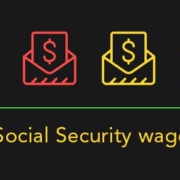TAX BRACKET
Try to envision income that is included on a tax return as blocks of income stacked one upon the other. The first block represents the taxpayer’s standard or itemized deductions on which there is no tax. Following that is another block representing the total of the return’s personal exemptions, which is also tax-free. The next block of income would represent the income subject to a 10% rate. If there were additional income, each subsequent block of income is taxed at progressively higher rates. Currently, the rates are 10%, 15%, 25%, 28%, 33%, 35% and the maximum at 39.6%. The tax rate on the last block of a taxpayer’s income represents the taxpayer’s tax bracket. The reasoning is that generally any increase or decrease in income would be affected at the top tax rate, also known as the tax bracket.








Leave a Reply
Want to join the discussion?Feel free to contribute!